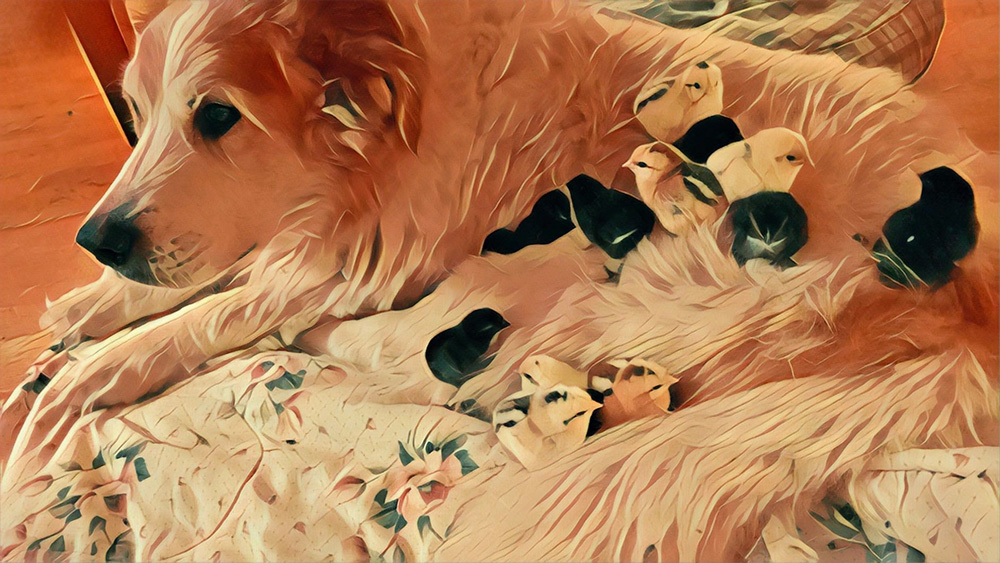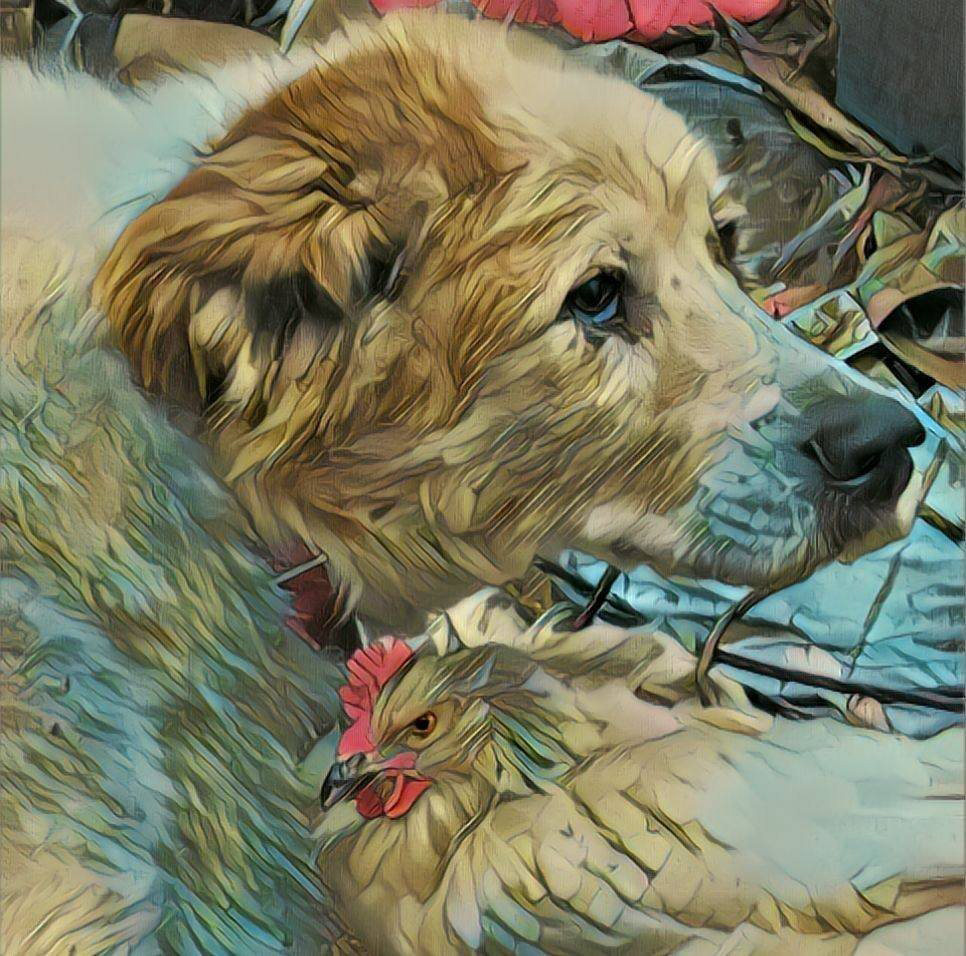A Blog of Flashbacks Obituary for Max
By Whitney Rapp, Max’s owner and our neighbor
February 2026
 |
The younger Max |
The Only Dog to Chase Deer, Ride a Ferry, Fight a Bear, and Still Fear Water and Thunder
Max, beloved companion, accomplished food thief, and unlicensed poultry bodyguard, crossed the rainbow bridge on Friday the Thirteenth after spending the last year valiantly attempting to defy biology itself. Though his body worn down, his mind and senses remained razor-sharp until the final moment—because of course they did. Max never did anything halfway.
His journey began on Gotcha Day March 1, 2015, in John Day, Oregon, where he arrived bearing the name Max, age 3-5 years, grossly obese at over 130 pounds, and boasting perfectly soft, uncalloused paws that bled the very first time he attempted a walk. Identified as St. Bernard-cow dog mix, his character more likely aligned with Great Pyrenees lineage.
To help him shed some weight, Max was initially trained to chase deer in Oregon, a thrilling cardio routine that hazed back the abundance of animals from town. Regardless of where his human continued onward, he’d re-locate when the quest was complete.
His reduced rations led to ingenuity, including sneaking beneath the chicks’ chain link fence to eat all their food. His stealth, dedication, and complete lack of guilt were inspirational. Once tufts of white fur were found in the twisted bottom wires from his routine trips in and out of their area, it was acknowledged he was a gentle giant with poultry, but he was excluded from their food. His diet and exercise brought him down to a fit weight in the 80s.
Max swam exactly once in his life—after being dragged into a pond on leash—and he logged those minutes (or seconds?) as sufficient for all future lifetimes.
By 2016, Max was Alaska-bound via ferry. He proved both vulnerability and fortitude on the 3-day trip by getting seasick as well as refusing to disembark at any port because ramps and water were obviously death traps. He at least conceded to go to the bathroom on the car deck once docked in Ketchikan, which was about 18 hours following embarkation. He rode the ferry three times in total and finally agreed to ascend the ramp when a high school sports team lined the ramp in Sitka to cheer him up and off the ferry.
Chasing wildlife became inadvisable upon moving to Alaska—where the local wildlife (moose, bears, wolves) play for keeps. Max quickly transitioned to safer hobbies, such as patrolling the yard, mentoring chickens, and training his neighbors.
Alaska awakened his inner guardian. Max protected his chickens and ducks with absolute devotion, once even jumping onto the back of a black bear to defend them. He routinely scanned the sky for ravens, eagles, and other raptors, hazing them from the property with the intensity of an air traffic controller who had seen too much.
Culinarily, Max was a refined gentleman: a connoisseur of chicken poop and salmon skin, but a steadfast critic of duck poop and all medicine. He also showed zero aptitude for finding morel mushrooms despite training attempts, though he excelled at locating and inhaling berries—particularly those not meant for him.
Max spent years expertly training the neighbors, especially Rob, to give him treats. His solo quests for cookies were legendary and highly effective.
During his final year, though his body faltered, Max held onto life with stubborn determination, refusing to acknowledge that his legs and hips were no longer the supreme machines they once were. His sharp mind, keen senses, and enormous heart remained intact until the end.
Max leaves behind a heartbroken human, a coop full of chickens and ducks who never fully appreciated their elite security detail, and a neighborhood he once patrolled with a swagger unmatched in Alaska.
Run free, Max. May the berry patches be endless, may your plate be filled with fish skins, may every ramp be optional, and may no puddle ever exceed mudflap depth again.
 |
The older Max, still the protector of chickens and ducks. |
Abigail here. Yes, the Rob mentioned in the obituary is my husband, whom all dogs and cats train well to spoil and feed them. He is not an alpha person when it comes to animals; they train him. He has always had a special relationship with our four-legged companions and neighbors. In a group of people, they come to him and have long conversations. It’s private so I never ask about what.

|
